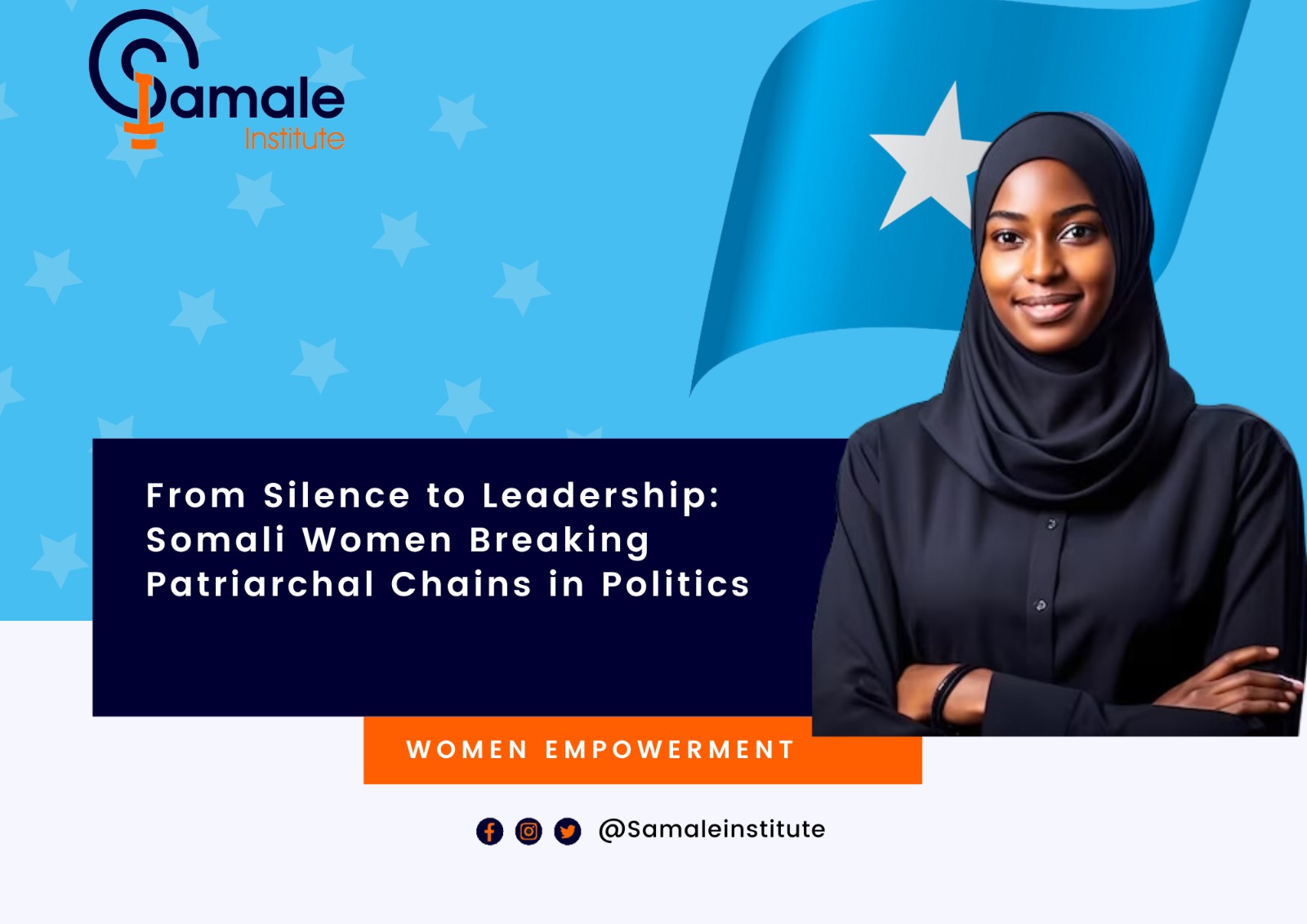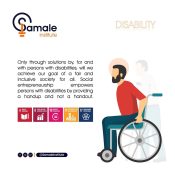
From Silence to Leadership: Somali Women Breaking Patriarchal Chains in Politics
Introduction
Somali women have long been the backbone of their communities, playing vital roles in maintaining families, economies, and social structures, especially during times of conflict and instability. However, when it comes to political participation, Somali women face significant challenges rooted in deeply entrenched patriarchal norms. This blog post explores how patriarchal culture impacts Somali women’s ability to engage in politics and the ongoing efforts to overcome these barriers.
1. Patriarchal Culture and Gender Roles in Somalia*
Patriarchal culture in Somalia is deeply rooted in traditional beliefs that often prioritize men as leaders and decision-makers. Women are typically expected to focus on domestic responsibilities, such as childcare and household management, while men are seen as the natural leaders in public and political spheres. This cultural framework limits women’s opportunities to participate in politics and reinforces the perception that politics is a “man’s domain.”
2. Barriers to Political Participation
Several factors stemming from patriarchal culture hinder Somali women’s political participation:
– Cultural Norms: Many communities view women’s involvement in politics as inappropriate or even shameful, discouraging women from pursuing political careers.
– Lack of Education: Limited access to education for girls and women reduces their ability to compete in political arenas, where literacy and knowledge of governance are essential.
– Economic Dependence: Women’s economic reliance on male family members often restricts their autonomy and ability to campaign or hold office.
– Violence and Intimidation: Women in politics often face harassment, threats, and violence, both from within their communities and from political opponents.
3. Progress and Resilience
Despite these challenges, Somali women have made significant strides in recent years. The introduction of a 30% gender quota in the Somali Federal Parliament in 2016 was a landmark achievement, increasing the number of women in political office. Women like Fawzia Yusuf Haji Adam, Somalia’s first female foreign minister, and other female leaders have become role models, inspiring younger generations to challenge traditional norms.
Civil society organizations and women’s rights activists have also played a crucial role in advocating for gender equality in politics. Initiatives such as leadership training, mentorship programs, and awareness campaigns are helping to empower women and shift societal attitudes.
4. The Road Ahead
While progress has been made, much work remains to ensure Somali women can fully participate in politics. Key steps include:
– Strengthening legal frameworks to protect women’s rights and ensure equal opportunities.
– Increasing access to education and economic resources for women.
– Challenging harmful cultural norms through community engagement and education.
– Providing security and support for women in politics to address violence and intimidation.
Conclusion
Patriarchal culture continues to pose significant challenges for Somali women seeking to participate in politics. However, the resilience and determination of Somali women, coupled with supportive policies and grassroots activism, offer hope for a more inclusive political future. By breaking down these barriers, Somalia can harness the full potential of its women leaders, paving the way for a more equitable and prosperous society.
Call to Action
Let’s continue to support and amplify the voices of Somali women in politics. Share this post, engage in conversations about gender equality, and advocate for policies that empower women to lead. Together, we can help create a world where every woman has the opportunity to shape her nation’s future.




